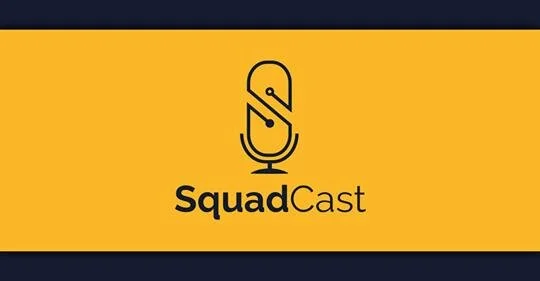What Instructional Designers Need to Know About Developing Podcasts for Online Courses
The most entertaining, informative, and convenient way to learn in the 21st century is through podcasting. While popular belief is that the majority of us are “visual” learners (total myth by the way), there are still millions of people who love to learn through auditory methods. As of this moment, the top podcast publisher, NPR, has a monthly audience of around 25,923,000. It’s safe to say that podcasting has been adopted by many to learn new skills, yet podcasting is still ground breaking in online higher education. Instructional designers have been tasked with incorporating podcasts into online courses and if you are an instructional designer, you might be scratching your head, wondering where to start. Below are my five steps that I found helpful when developing podcasts for online courses.
Define the Purpose of the Podcast
As podcasts become more popular in higher education, it seems like a no brainer to make a podcast for a course. However, as an ID, you should define the reasoning for creating the podcast in the first place. What will students gain from listening to this podcast? What’s the intent the podcast is striving for? Have this purpose defined clearly just like a course outcome. For example, by listening to this podcast, students should be able to “insert outcome here.” Podcast outcomes are a priority to make sure that podcast content aligns with the final product.
Identify the Style of the Podcast
Think of a podcast idea like a block of clay. How are you going to mold the content into a podcast episode? Is it for enjoyment, entertainment, education or something else? This is going to determine the structure of the podcast. Much like how when writing a paper there is an introduction, body, and conclusion, a podcast can have the same formatting. A podcast made to supplement material of an online lecture, is a different style compared to listening in on an interview. They would have different set ups, timeframes, cues, etc. For instance, when I created the podcast for MIT’s leadership program, I decided on a journaling/story telling atmosphere. There were several high-quality recorded interviews about the framework for the program, but it needed a voice to narrate how they all fit together. When I created the Dr. Luke Hobson Podcast (clever name right?) around these blog posts, it had a different tone and was more like a presentation vibe. Listen to a variety of podcasts and carefully examine how the host presents the material. This will give you a few samples to work with and find what works for you.
Make it Entertaining
What’s your job as an instructional designer? To me, you are aiming to make learning informative AND enjoyable. Have you ever attended a presentation before where the speaker has 200 PPT slides and reads off of them the entire time? Its informative yet soul crushing. You are striving to make students want to listen to this podcast. Get creative. Think differently. A podcast allows academic freedom in a unique way. You get to be the voice to make course content come alive! As you are developing the podcast episodes, ask yourself if you would listen to this and find it enjoyable? If the answer is no, you need to go back to the drawing board.
Define What’s Next
After students have listened to your podcast, what comes next?
Should they go back into the course?
Should they write down what they learned?
Should they move on to the next episode?
This depends upon the style of your podcast, but there could be a call to action. It all depends upon the purpose of the podcast. The leadership podcast I referred to earlier was used as supplemental material for understanding the program’s framework. This does not require a call to action. However, I have developed courses on nutrition where there was an assignment directly related to the podcast. After students had either listened to the podcast or read the transcript, they were asked to go back into the course and answer the affiliated assignment. Think of it like a scenario-based story telling assignment. The call to action provided needed clarification and direction on how to proceed within the online course, almost like a prompt before a problem.
Focus on Quality
Have you ever listened to a podcast episode where the content was amazing, but the quality was terrible? It’s a sure fire way to make someone disinterested. If you are going to be designing a podcast for enhancing the learning experience, you absolutely must focus on a high quality production of your show. I have used just about every platform out there and the majority of them have flaws. One platform I just started using for the Dr. Luke Hobson Podcast is Squadcast. Conducting interviews with other video sharing platforms created bandwidth issues and low quality audio files. I found out that Squadcast does NOT record the video, but uses the video to have a more flowing conversation with someone to be able to read body language and eye contact. The audio files also download separately allowing you to mix and edit each track. The most shocking feature was that the audio files came in crystal clear on using a standard iPhone headset. I love my ATR-2100 microphone, but not every guest on your podcast will have the same mic. It’s the only platform I am going to use moving forwards.
*Full disclosure - I am now an affiliate with Squadcast and will make a commission if you purchase through my link. If you do, thank you!
This isn’t all you need to know about podcasting for online courses, but it’s a solid start! The most important piece of advice I can give you is to embrace this challenge. Podcasting for online courses is still relatively new and you may find a style that really speaks to you and your students. Remember, that you are doing this for them so it must be clear, informative, and worth their time.
Want to take your instructional design skills to the next level? Check out Instructional Design Institute.







